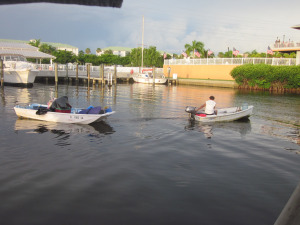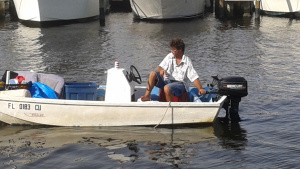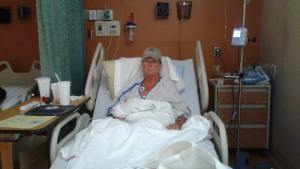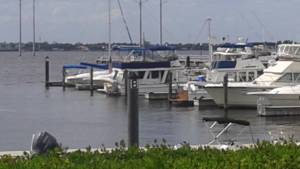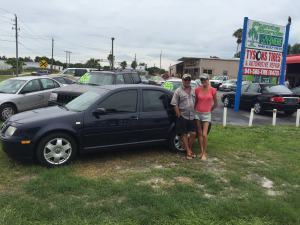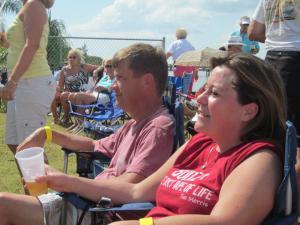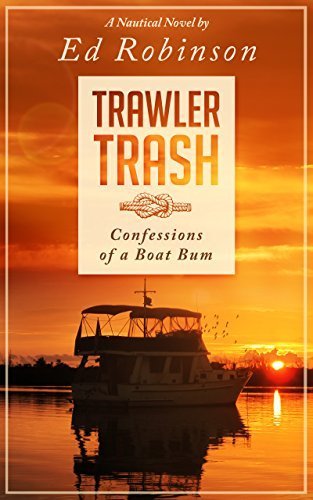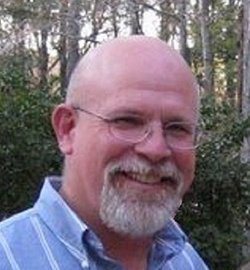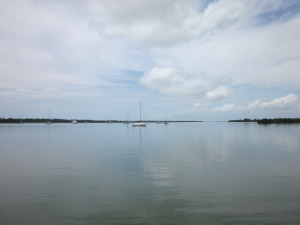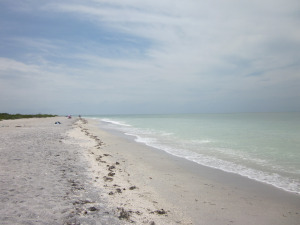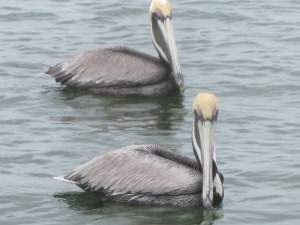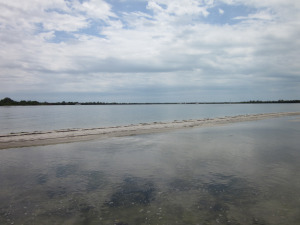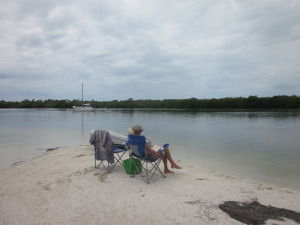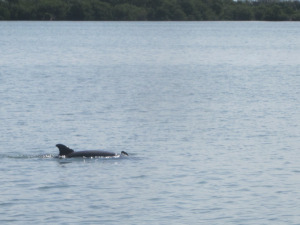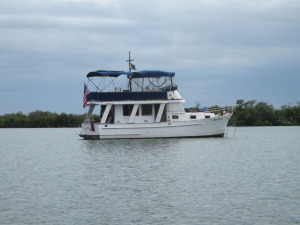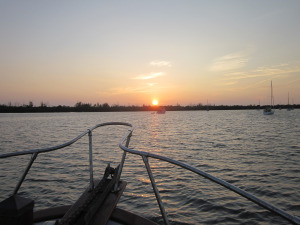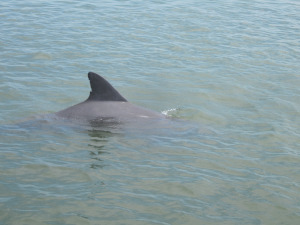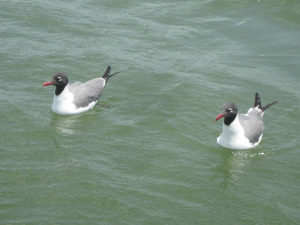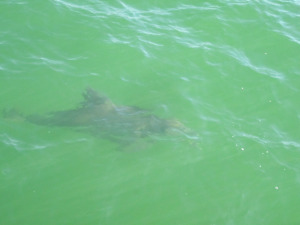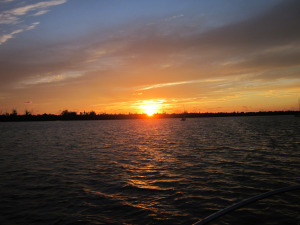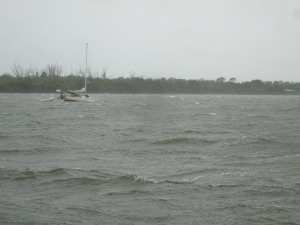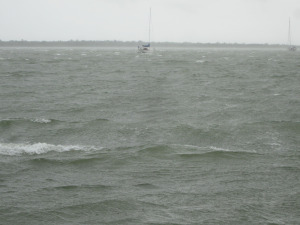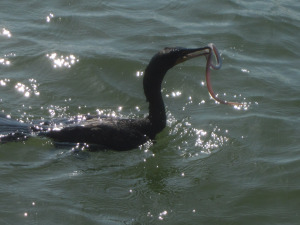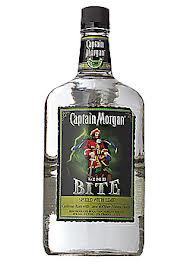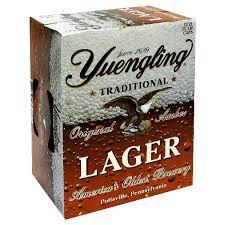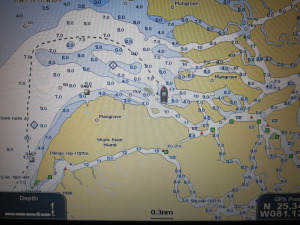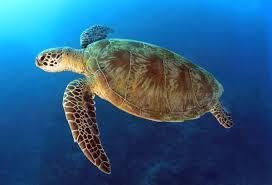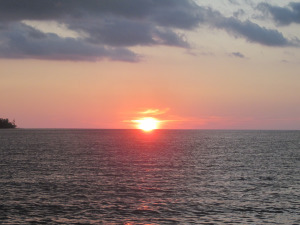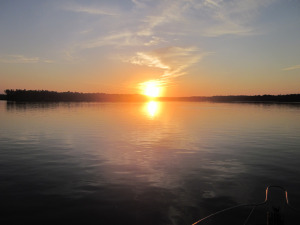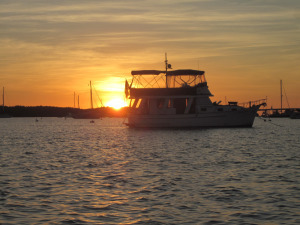Ed Robinson's Blog, page 10
June 30, 2015
Boat People: The Sad Tale of Cross-Eyed John
We meet lots of “characters” during our travels on the water. Boat people are a special breed. Cross-Eyed John is his own kind of special. He was homeless in Key West for several years. He started selling roses on Duval Street and saved up enough money to buy an old sailboat. He wanted to escape the Keys, and his addictions, by sailing away from it all.
Now John had never sailed. He ran aground multiple times on his way up the west coast of Florida. He got lost in the fog. He actually stopped and asked for directions! Somehow, he made his way to Punta Gorda without killing himself or sinking the boat.
I met him at Gilchrest Park one day as I was about to scrape barnacles from the dinghy bottom. He introduced me to a homeless man in the park and suggested I pay the poor guy to do the dirty job. I agreed. John called himself JR that day. He said he had been sober for several months. He had a job. He was turning his life around. We’ve crossed paths several times over the past four years. Most recently he took a mooring ball outside Laishley Park Marina, where we are staying. He had cut off his very long hair so I almost didn’t recognize him. He was drunk.
He told me he’d been arrested for battery up in Sarasota, and had a pending court date. A rough and tumble liveaboard of questionable sanity was beating another boater with a dinghy oar. John stepped in and wrested away the weapon, gaining stitches in his face in the process. He then beat the man senseless.(his story)
After a few days in the neighborhood, John shows up towing a small skiff.
He wanted a motor for it. I happened to have one for sale. We came to terms and he promised me he had the cash. He’d come back the next day with the money. He left the skiff tied to the dinghy dock.The next morning I carried the outboard to his skiff and installed it before he arrived. It wouldn’t start. Kim comes down and finds a wallet on the dock. It belonged to John. There was close to a thousand bucks in it. John shows up with a sob story about how he lost his wallet so he can’t pay me. Kim to the rescue. She hands him his wallet and he can’t believe the money is still there.
Meanwhile, I’m cussing and spitting at the motor which still refuses to start. I take it back off. Clean the carb, pull the spark plugs, check the fuel filter, etc. No go. John, who is drinking beer at 8:30 in the morning, says he ain’t buying if it don’t run. Fair enough.
Eventually, I was able to make it work. It started, and with some more tinkering I got it running smoothly. John was thrilled. He rode it all around and came back to thank me for hooking him up so well. He brought me beer as a gift. He went out for a joyride.
Then he ran out of gas. He didn’t run out of beer though. He floated on Charlotte Harbor and drank until he passed out. He awoke the next morning. He’d drifted up the Myakka River all the way to El Jobean. Someone towed him and his skiff back to Punta Gorda, where he could get gas at Fisherman’s Village. A one-time owner of the skiff, just happened to be there. This person recognized the skiff, and called the police to report it stolen. John says, he was doing some odd jobs for a person who cleaned up foreclosed properties, and they GAVE him the skiff, to get rid of it. John had no title for it.
All gassed up and feeling fine. John proceeds to speed through a no-wake zone on his way home. The FWC pulls him over. The skiff has no valid registration. The officer calls in the old FL numbers and discovers that the skiff has been report stolen. Uh Oh. She also decided that he may be a little drunk, so she gives him a breathalyzer. He was drunk indeed. She calls the Sheriff’s office and multiple cops arrive by boat and by car and by truck. The only thing missing was a horse. Seven cops take John down and cuff him. Off he goes to the pokey.
After a few days in jail, John shows up at my boat. He was officially charged with
BUI, (boating under the influence) He’s had five prior DUIs in his lifetime. He managed to convince the Sheriff’s people that he didn’t steal the boat, but it is now gone. His new motor, (my old one) was impounded. We were able to convince them that his ownership of the outboard was legit, and he’s getting it back. They also found an ounce of marijuana in the skiff. He’s uncertain if he will be charged with that. He still has to face the battery charge in Sarasota. He’s pretty sure he’s going away for at least 18 months, possibly longer. The judge told him not to drink until this thing was settled. He was drinking as he told me his tale.
All he’s worried about is his boat. We discussed what he might do with it while he serves his sentence. If he loses it, he’ll be homeless when he gets out. I’ve talked with him at length lately. Somewhere in his scrambled mind is a good person. He understands right from wrong, but he just can’t stay sober. When he’s drunk, he makes very poor decisions. I’m sure there’s some mental health issues as well.
Cross-Eyed John, Drunk John, JR . . . whatever your name really is – Good luck. Maybe the jail time will sober you up and start you on the right path. Then again, this won’t be his first prison term. Some folks never learn.


June 3, 2015
Big Changes for Leap of Faith
Followers of this blog and/or our Facebook page know that we don’t frequent marinas. We much prefer to swing peacefully on the hook in some quiet cove on the west coast of Florida, or in the Keys. Circmstances change.
We arrived in Punta Gorda one month ago. We hoped to re-provision, see some old friends, and continue on our merry way. Instead, Kim became deathly ill. Long-time followers know that she has had a variety of health issues over the years. I detailed her earlier struggles in the book, The Untold Story of Kim. This time she was hospitalized, and diagnosed with pancreatitis.
She is recovering nicely, but her long-term well-being requires some major lifestyle changes. As a result, we’ve decided to stay here, at Laishley Park Marina for the foreseeable future. We’re becoming . . . . Marina People! (Gasp)
Hopefully, she’ll be well enough to resume cruising in the fall, and we may or may not return to the Keys for the winter. We’ll see.
For the last month, we’ve depending on friends to give us a ride to the grocery store and doctor’s appointments. We really don’t like being dependant on others, Sooooooo – yesterday we walked up town and plunked down cash for a used car. We’re the proud new owners of a 2000 VW Jetta. 1200 hundred bucks is gone from our cuising kitty. Add insurance to the list as well. There was a time when we couldn’t have afforded any of this in good conscience. Things are looking up financially though, so we should be okay with the additional expense, at least for the time being.
Meanwhile, we are adjusting to marina life. We have friends here. It’s a super nice place to be. We’ll consider it a hiatus from cruising, with an eye to the future. I plan to concentrate on writing, while Kim concentrates on getting well.
The only thing constant in life, is Change. This is a big one for us. Wish us well, and thanks for your suport.
Ed and Kim Robinson


May 19, 2015
What Do The Characters Look Like? (Trawler Trash and Following Breeze)
Do you read books and form a mental image of the characters? How does an author create that image. Personally, I form characters based on real people. I know what someone looks like in real life, so it makes it easier to describe them in words. Some of the pictures here are actual friends of mine, used fictitiously in my novels.
Some of the pics are not the real McCoy, but very close in appearance.
Captain Fred, Incognito, Georgetown Bahamas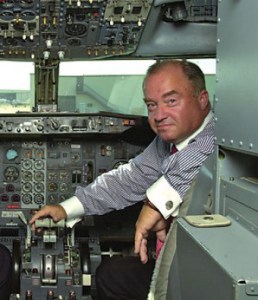
Breeze’s lawyer, Mike Savage (on the left)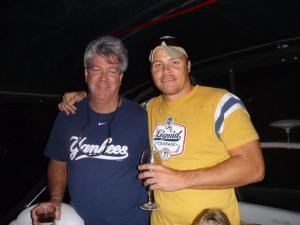
Diver Dan’s sidekick Robin, with his dog Kitty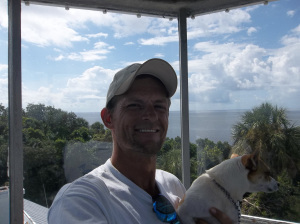
Now here’s the real question…. What about Breeze? What/Who does he look like? Who should play him in the movie?
Trawler Trash: Confessions of a Boat Bum


May 18, 2015
Fiction With A Nautical Flair / Jinx Schwartz
The Hetta Coffey series stars a colorful main character, a sassy Texan with a snazzy yacht. She’s not afraid to use it as she chases down intrigue while slamming down the drinks and mouthing off.
Jinx’s writing style can be a bit irreverant, but the first in the series, Just Add Water, was the winner of the National EPPIE Award for BEST MYSTERY.
Each following installment finds Hetta in more crazy scenarios. This series has a very strong following.
Visit Amazon’s Jinx Schwartz page here:
http://www.amazon.com/Jinx-Schwartz/e/B004GZ5MO4/ref=ntt_athr_dp_pel_pop_1


May 17, 2015
Fiction With A Nautical Flair / Wayne Stinnett Interview
Back in February, I introduced you to the works of Wayne Stinnett. His Jesse McDermitt Series novels have been hot sellers at Amazon for the past year. If you missed that post, you can find it here:
http://quityourjobandliveonaboat.com/2015/02/24/jesse-mcdermitt-series-by-wayne-stinnett/
Today, I have an interview with the author, and a bonus track! I’ve included Wayne’s interview with his main character, Jesse McDermitt. Let’s get started.
Author Interview Questions and Answers
From Wayne Stinnett
Tell us a bit about your family.
My wife, Greta and I have four kids and four grand-kids, with another on the way. Our oldest is in her thirties and our youngest just became a teenager. We’ve had kids in the house for over thirty years and I have a grand-son who’s a year older than my youngest daughter. I’m the second of four siblings and the oldest of three brothers. Sadly, we lost our youngest brother six years ago to cancer.
What books did you love growing up?
I was a big fan of the Hardy Boys Mysteries by the many ghost-writers collectively using the pseudonym Franklin W. Dixon. When my family moved to Florida when I was a young boy, I found a new book in the library by some guy named John D. Macdonald. I was hooked. Travis McGee lived a life that any kid growing up in Florida in the 60s and 70s dreamed of doing. When I got my first car, the first place I wanted to visit was Bahia Mar Marina in Fort Lauderdale. Imagine the disappointment of a sixteen year-old kid when I found there was no Busted Flush, nor slip F-18.
Who is your favorite author?
I’ve read all the McGee novels at least half a dozen times. I also enjoy James W. Hall, Carl Hiaasen, Randy Wayne White, and Elmore Leonard. Among indie authors, Michael Reisig and his books have been both mentor and inspiration. Michael reached out to me after reading one of my books and has been a great help in my writing. Over the course of reading one another’s books we saw many similarities, even in character names. We chalked it up to our both having lived in the same part of the Florida Keys at about the same time.
Location and life experiences can really influence writing, tell us where you grew up and where you now live?
I grew up in Eau Gallie, Florida, about halfway down the east coast of the state. It’s since been swallowed up by the city of Melbourne. The area sits on the west side of the Indian River Lagoon, which stretches over 150 miles, from Fort Pierce to well north of Cape Canaveral. As kids, we explored the lagoon close to home and all the creeks that fed into it, by canoe and later, power and sail boats. I spent a lot of time visiting and living in the Florida Keys as a young man. For the past thirteen years, we’ve been living in upstate South Carolina, near a small town called Travelers Rest. We’re over two hundred miles from the coast and I miss it a lot. This summer we plan to move to Beaufort, to be closer to the kids and grands. The old man is returning to the sea.
What else do you do to make money, other than write? It is rare today for writers to be full
time…
I don’t think it’s as rare as most people think. I know of a whole lot of indie authors that are quietly earning a decent income from their writing. No, we’re not on the tip of every reader’s tongue and are, in fact, almost completely unknown. My only source of income is my writing and we live just as comfortably as we did when I was a truck driver. More comfortably in view of my being home every day and able to take our daughter to school, pick her up and kneel by her bed every night to pray. My wife works part time, but will be coming home for good at the end of May to take over a lot of the non-writing aspect of being an indie. That doesn’t necessarily mean I’ll write more. I intend to keep to my schedule of three books a year, but recently my work days have stretched into twelve to fourteen hour days. So, we’ll be taking time off to enjoy life.
What other jobs have you had in your life?
You name it, I’ve done it. Through high school I worked in sales. Afterwards, I served in the Marine Corps for four years. When I came home from the Corps, I worked in construction and during down times, as a bar bouncer, commercial clammer and fisherman, cab driver, deckhand on a freighter, and divemaster. I took time away from the construction trade several times and worked as a divemaster in the Florida Keys, as well as overseas as a maintenance tech on Andros Island, Bahamas and again as a divemaster in Cozumel, Mexico. My last few years back home in Melbourne, Florida and then in South Carolina, I worked in construction management, but the stress was more than I wanted. In the early 2000s, two years after moving to South Carolina, I got a commercial driver’s license and worked as an over the road truck driver, usually hauling over-sized loads from South Carolina to the Rocky Mountain states. For the last year, I’ve strictly been a story teller.
How do you write – lap top, pen, paper, in bed, at a desk?
My writing has evolved a lot over the years. In the eighties, I used pen and paper, then transcribed the short stories on a typewriter. A manual typewriter. I had zero success with my short stories back then and set the dream of being a writer aside to tackle life. In 2012, I took it up again, slowly developing an idea for a novel using a laptop and writing at night in the sleeper of the truck. Today, I still write with my laptop, usually sitting in my recliner in the den, with at least two dogs for company. I read dialogue to them and judge its realism by their reaction.
Do you have an organized process or tips for writing well? Do you have a writing schedule? Have you ever had writer’s block? If so, what do you do about it?
I’ll answer all these questions together. Writer’s block is a real thing. Sometimes, you just can’t sit down and start writing. It feels forced and uncomfortable. That’s because your head’s out of the story. To get my head back into the story, I follow the same process every day. Each day, when I finish writing, I type the word count at the end and set it as a style heading, so it appears in the table of contents, in MS Word. The next day, I go back to the word count number I entered two days previous, delete it and start reading, editing and expanding as I go. When I get to where I stopped yesterday, I drop below the latest word count number and start writing again, now with my head lost in the story. When I finish, I add the word count again, so there’s always three word count entries in the TOC. I strive to write a thousand words a day, but sometimes miss a day, when other things need to be done. This also means that by the time the book is finished, I’ve edited the entire book twice.
How did you come up with the title for your first book?
Fallen Palm was my first book, though it’s the second book in the series. Fallen Out was written fourth, as a prequel to the series, to answer a lot of email questions readers had about the characters’ back stories. Fallen Palm was initially called Lynx Key Reign. It wasn’t until the last two paragraphs that the new title leapt off the page. A single palm tree being cut down in the middle of an island represents a huge transition in life for the main character. It was my daughter’s idea to stick with the word fallen in all the titles in the series. When writing Fallen Mangrove, the fifth book, she also suggested the titles follow the same pattern, since mangrove was the second tree used in the titles. Now I not only have to come up with a word that goes with fallen, but has to be in the order of tree, celestial body, and emotion, leaving Fallen Out out of the pattern. Fallen Palm references the palm tree that had to be removed so Jesse’s island could be used as a helicopter landing zone. Fallen Hunter represents the time of year when the constellation Orion is setting just after the sun. Fallen Pride is named for the lost sense of pride a secondary character has after a dishonorable discharge from the Marine Corps. Fallen Mangrove deals with a clue to a buried Spanish treasure hidden in a mangrove tree. Fallen King revolves around the planet Neptune setting just after sunset. My upcoming Fallen Honor deals with the loss of honor in one of the regular secondary characters.
Can you tell us about your main character?
In the short stories that the first two books, Fallen Palm and Fallen Hunter, are based on, Jesse McDermitt was a twenty-four year-old Marine veteran, who moved to the Keys to escape society and earn a living from the sea, much as I was at the time. In the later novels, Jesse is a retired Marine Gunnery Sergeant, who buys a charter boat in the Keys and works only part time, to supplement his retirement pension. Jesse’s a tall, physically fit man in his late thirties in Fallen Out, progressing to mid-forties in my current work in progress, Fallen Honor. A former sniper trainer in the Corps, he has a well-developed sense of survival and justice. Unfortunately, he doesn’t have a lot of faith in local authorities to solve societal problems and often takes matters into his own hands. He’s not perfect, and often makes mistakes. But in the end, justice is served. Whether it be by a well-placed rifle shot, or scavenging crabs and vultures doesn’t matter.
How did you develop your plot and characters?
I’m a complete pantser, I never have a plot. Maybe a basic idea in my head and a certain setting. I like to write about places I’ve lived or visited, so I pick a destination, give the GPS coordinates to Jesse and he takes the helm from there. Sometimes, he goes completely off course, though. All my characters are based on people, or a conglomeration of people, I’ve met all over the Caribbean Basin. The settings are places I know intimately.
Who designed the cover?
While trying to create my own cover for my second book, Fallen Hunter, a long-time friend sent me a quick cover design that he did, which was far superior to what I was doing. I asked him if he’d do a new cover for Fallen Palm as well. Since then, Tim Ebaugh has done all my covers, using either his own photography or something I supplied. I’ve known Tim since were teenagers and I once dated his sister. Tim actually photographed the covers of Fallen Hunter, Fallen Mangrove, and Fallen King. His father is an accomplished photographer as well. Fallen Out is my own photo, taken years ago by my late brother. It’s a picture of me, relaxing in a hammock at sunset on Big Pine Key, where the two of us rented a house two or three times a year and fed up to twelve people by lobstering and spearfishing. Fallen Palm was a photo I bought the rights to from iStock. Fallen Pride was photographed in three parts by my friend and Sister Marine, Nikki Godsey. It features her husband, Corey, and his friend Zach, both Wounded Warriors. I donate half the sale of every copy of Fallen Pride to Homes For Warriors, a non-profit that remodels homes in my home town and gives them to deserving vets. Tim does the graphics on the covers of all the books, though.
Have you included a lot of your life experiences, even friends, in the plot?
Being a Marine, Jesse is based loosely on my own moral convictions. I use a lot of my own experiences in the Corps and the Florida Keys, in describing Jesse’s old life and his new life down there. He’s kind of a mix of myself, Travis McGee, the character Thorn, in James W. Hall’s books, the character Doc Ford, in Randy Wayne White’s books, the character Jack Reacher in Lee Child’s book and a lot of my late father’s mannerisms and work ethic. In writing Fallen Pride, I asked my friends on Facebook if any of them would allow me to use their names for small characters. It was a lot of fun, matching friends to the people in my story. Rusty Thurman, Jesse’s best friend, is based on two old friends, one from the Corps and another from the Keys.
What are your current writing projects?
In the five books from Fallen Palm through Fallen King, Jesse has been loosely attached to a government agency, working as a contract “transporter” of operatives and equipment, using his charter boat as cover to move members of the team around south Florida and the Caribbean. This wasn’t something I’d designed to do. It just happened. Right now, I’m working on Fallen Honor, a book that will return Jesse to his hermit-like lifestyle, through a falling out between him and the leader of the government agency. At the same time, one of the team will be the main character of a whole new series, continuing the storyline of fighting terrorism in the Caribbean. Fallen Honor will debut in late July or early August and the first book in the new series should be published by the end of summer or early fall. I’m working on both at the same time, but with Fallen Honor as the priority.
Do you have any upcoming appearances that you would like to share with us?
This August, I’ll be in Key West for the Mystery Writer’s Key West Fest, along with my wife and youngest daughter. The convention is open to the public and I’ll be selling my books at a booth and attending workshops on mystery writing. The convention is August 14th-16th, but we’ll be there from the 10th to the 16th, so I can show Greta and Jordy around. There will likely be copious amounts of rum involved.
Wayne Stinnett Interviews his Character Jesse McDermitt
Hey Jesse, how are ya? I guess the first question is the same as what any two Marines ask. Where are you from originally and what was your childhood like?
Hey, Wayne. Thanks for coming out to the island. As you probably know, I was born in Fort Myers, Florida in March, 1961. Dad was a Marine, as was his dad before him. Dad insisted on maintaining a home in his and Mom’s hometown of Fort Myers. He served in Vietnam, but he was killed in action when I was eight. My mom, in her grief, took her own life and I went to live with my Mam and Pap, dad’s parents. Before my folks died, me and Mom went to be with Dad a few times, whenever he was going to be stationed in the same place for a year, so I got to see some of the world, before he was killed. Mam and Pap raised me to work hard and do for myself.
What about later, as a young man, before joining the Marine Corps? Girlfriends?
I guess it was the typical southwest Florida life for a teen. Pap taught me to fish and dive and build things with my hands. I helped him build three boats before I was seventeen. My buddies and I spent a lot of time out on the Gulf, fishing and diving, and also in the Glades, or down island, camping. I dated a few girls but nothing serious. I was kind of a gawky kid and a bit shy.
You were once known as one of the best snipers in the Corps. What was that like?
My job was simple, locate and remove threats. Most of my time in the Corps was peacetime, but when the time came to implement what I’d learned, it was just the job. You have to detach yourself from the fact that you’re taking a human life.
The shot in Mogadishu?
I count that as a failure and don’t talk about it much. I deviated from the mission, unnecessarily giving away my location, imperiled other Marines, and in the end nothing was accomplished except one bad guy was dead and another filled his shoes. The kid that I’d saved was killed within the hour.
Do you miss it? The action? The Corps?
Every day, man. Not the action, there’s no glory in war. But, the people I worked with and the knowledge that I didn’t have to check over my shoulder to know that the guy behind me had me covered and would give his life for me and me for him, if necessary. Yeah, I miss that connection sometimes. That kind of camaraderie doesn’t exist in the civilian world. Everyone’s only looking out for themselves.
Was it hard to transition to civilian life?
Not at first. I’d visited the Keys hundreds of times, Mam and Pap had passed on by the time I retired, and there just wasn’t anyone in Fort Myers waiting for me. So I just kept heading south. My buddy Rusty put me up for a few days at his house in Marathon and he helped me buy a charter boat and get set up with the licensing and all. I lived on the boat and took out a charter now and then. After 9/11, I went through a difficult phase. Tried to reenlist, but the prior service recruiter said I should leave this one to the younger guys. Made me feel like one of those old guys at the Veteran’s Home, telling stories about the glory days and the Old Corps. I wasn’t yet forty, but already a used up, has-been.
You have a family, right?
Sort of, yeah. I was married and had two daughters, during my first few years in the Corps. My wife was unhappy with the deployments and took the girls home to Virginia when I was deployed to Panama. I saw them a few times after that, but my ex filled them with lies and eventually I had no part of their upbringing. Until my youngest found me last year. Kim’s a great kid and spent most of the winter on the island with me. She’s up in Gainesville now, in college. It took more convincing for my oldest daughter in Miami to realize what my ex had told them all their lives were lies, but Eve and I are slowly getting to know each other, along with my son-in-law and my grand-son.
So, what’s a typical day like in Jesse McDermitt’s life today?
What day is it? Never mind, it doesn’t matter. We don’t have clocks or calendars on my island. We work when work needs to be done and time is measured by the rise and fall of the tide. Months are counted by hurricane season and tourist season. I get up, when I get up. I usually swim three miles or kayak five, in the mornings and then Carl and I work the garden. He and his wife are the island’s caretakers and we grow our own vegetables, fish, and crawfish in an aquaculture system. There’s always work to do on the island and we eat what we catch and grow. We eat when we’re hungry, sleep when we’re tired and if there’s no work to do, just relax and enjoy life.
What about your involvement with Homeland Security?
That evolved out of a necessity to feel needed again and for vengeance. I think I’m pretty much over both.
Your third wife was killed by terrorists, is that right?
In a loose sense of the word, yeah. The men who killed her were really only connected to terrorism by smuggling their people into the country through the non-existent border that is the coast of Florida. They’re all dead now.
So, you’re no longer involved with the NSA and the Caribbean Counter-terrorism Command?
No, like I said, I’m over that need to feel needed.
Touchy subject?
Fuck you, Wayne. You know as much about it as I do. Maybe more. Let’s just say we had a difference of opinion.
No need to get excited, man. Sorry I brought it up.
So, what’s next? Are you and Linda getting married?
I don’t know. She’s a great lady, but she has her career and she can’t do it from my island. And there’s no way in hell I’m going to live in Miami. We’re just taking one day at a time.
Hey, I gotta go fishing. See ya around, okay.
Thanks, Jesse. Best of luck in the future. See you out on the blue, sometime.
Semper Fi,
Wayne Stinnett, author of the Jesse McDermitt Caribbean Adventure Series
http://www.waynestinnett.com
http://waynestinnett.blogspot.com
Wayne’s Amazon Author page:
http://www.amazon.com/Wayne-Stinnett/e/B00G1PVHNC/ref=sr_tc_2_0?qid=1431875202&sr=1-2-ent


May 16, 2015
Exclusive: Interview with Meade Breeze
Part rebel, part knight in rusty armor, and every ounce his own man, Meade Breeze is the rugged, reclusive Florida boat bum, with a special talent for attracting sexy women. His skill at handling boats is matched only by his knack for getting into, and out of, one predicament after another.
only by his knack for getting into, and out of, one predicament after another.
We’ve been trying to snag an interview with Breeze for a long time, but he stays off the grid. He’s always on the move and a hard man to track down. Now that he’s in police custody, we caught up with him at the Lee County detention center, near Fort Myers, Florida. (Cell C-9)
Interviewer: So where have you been the past few years?
Breeze: All over, man. I’ve to been to hell and back. Heaven too. I’ve cruised the Keys, the Bahamas, Turks and Caicos, Dominican Republic and the Virgin Islands. I just got back from the Chesapeake Bay not too long ago. I get around.
the Keys, the Bahamas, Turks and Caicos, Dominican Republic and the Virgin Islands. I just got back from the Chesapeake Bay not too long ago. I get around.
Interviewer: I understand there have been some pretty ladies in and out of your life?
life?
Breeze: I’ve been loving them and leaving them. Never seems to work out for me, but I’ve got no regrets.
Interviewer: What about Joy? She promised to wait for you at the end of Following Breeze
/Breeze: I hope she does, but she’s a free spirit. You never know. There’s something about her that I feel close to. She left a bad life behind and remade herself. She’s out there living free. Her “I don’t give a f*#k” attitude is attractive to me. We could be partners.
spirit. You never know. There’s something about her that I feel close to. She left a bad life behind and remade herself. She’s out there living free. Her “I don’t give a f*#k” attitude is attractive to me. We could be partners.
Interviewer: So what’s it like being behind bars? That’s got to be tough for you.
Breeze: It’s the worst. If I thought I’d have to stay in here forever, I’d just off myself. Never let them put you in a cage. Freedom is the only thing worth living for.
Interviewer: Do you think you can resolve your legal troubles?
Breeze; I’ve got my lawyer, Mike Savage, working on the embezzlement charges. I think that part will go okay. The IRS is another story. It will probably cost me every dollar I have left to stay out of prison. Of course, then I’ll have to return to Florida and face the pot possession charge. If at any time it looks like it won’t work out, I’ll run. I’d like to clear all this shit up, but I’ll run before they lock me up long term.
Interviewer: What will you do once you’re free , assuming you wiggle out of this mess?
, assuming you wiggle out of this mess?
Breeze: I gotta get back to my boat. Last time I saw Leap of Faith, it was riddled with bullet holes. I’ll fix her back up and disappear again. If I have any money left, I’ll go hide in the islands. If not, I guess I’ll go back to growing dope and brewing rum. It’s not such a bad life. Beats the hell out of working a real job.
to growing dope and brewing rum. It’s not such a bad life. Beats the hell out of working a real job.
Interviewer: So, you’ll never return to civil society? You plan to stay outside the real world forever?
Breeze: Damn straight. Once you taste real freedom, you never turn back. I don’t care how poor I am, just leave me alone and let me do what I want with my own life.
Interviewer: That seems to be a recurring theme for you. What is it that makes you disregard what the rest of us would call a normal life?
Breeze: Listen man. I’m ending it with this; You’ve all been sold a bill of goods about your so-called “normal” life. It’s all a lie. You can have your 9 to 5 job, your consumerism, your false media, your all-encompassing government and endless regulations and laws. You’re not free. Your a slave to your job, your mortgage, your car payment . . . what’s it all for? I’ll keep my freedom, thank you. I’ll keep my beach, my ocean, my sunsets and my liberty. My boat and my freedom; that’s all I care about. You can keep the rest.
. . . what’s it all for? I’ll keep my freedom, thank you. I’ll keep my beach, my ocean, my sunsets and my liberty. My boat and my freedom; that’s all I care about. You can keep the rest.
Read all of Breeze’s adventures in Trawler Trash, and Following Breeze.
http://www amazon .com/Trawler-Trash-Confessions-Boat-Bum-ebook/dp/B00MWUAROA/ref=sr_1_1?s=books&ie=UTF8&qid=1431800518&sr=1-1&keywords=trawler+trash
.com/Trawler-Trash-Confessions-Boat-Bum-ebook/dp/B00MWUAROA/ref=sr_1_1?s=books&ie=UTF8&qid=1431800518&sr=1-1&keywords=trawler+trash
http://www amazon .com/Following-Breeze-Trawler-Trash-Book-ebook/dp/B00U57DYTW/ref=pd_sim_351_1?ie=UTF8&refRID=1PMDZHCS24XY582ZHCME
.com/Following-Breeze-Trawler-Trash-Book-ebook/dp/B00U57DYTW/ref=pd_sim_351_1?ie=UTF8&refRID=1PMDZHCS24XY582ZHCME


May 8, 2015
Life Aboard / Photo Album from the past few weeks
We left Marathon in the Florida Keys and traveled up the West Coast of Florida, stopping over in the Everglades, Marco Island, Fort Myers Beach, Cayo Costa, and now in Punta Gorda. We dawdled for days and weeks in various anchorages, in no hurry. It was great to return to the friendly confines of Pelican Bay once again.
Here are some random shots from our time there:
And – just to prove it’s not always sunsets and calm seas, we had days like these:
My favorite shot was of this cormorant who bit of more than he could chew:
Just a little taste of what we do, for the dreamers out there. Peace.


May 6, 2015
Crucial Provisions; Cost Comparison / Florida Keys vs. the Mainland
Most of us are aware that everything is more expensive in the Keys. Food is generally 25% more expensive, for example. Marina slip fees are outrageous. The list goes on. But what about the REALLY important necessities?
Rum
Before leaving southwest Florida for Key West, we stocked up heavily on rum at the Port Charlotte ABC store.
We paid $19.99 per bottle for 1.75 litres of Captain Morgan.
In the Keys, we mostly paid $29.99 for the same size bottle and brand of rum. That’s a $10 dollar increase!
(The exceptions; if you can find a Walgreens with attached liquor store, the prices are much more reasonable.)
Box’O-Wine
In the Keys, we paid $14.99 to $15.99 for a box-o-wine. Here in Punta Gorda, at Walmart, we paid $9.99.
There is no Walmart in the Keys. Wine was more expensive by about the same ratio as rum.
Beer
We refilled our beer supply at the Publix in Marathon. A case of Yuengling was $24.99. Here in Punta Gorda, that same case costs $17.99. That’s 7 extra bucks per case in the Keys!
Sooooo, as you consider your cruising budget for your next trip to the beautiful Florida Keys, keep this valuable information in mind. Up your booze budget by about 50%, and maybe you can avoid sticker shock on your first trip to the liquor store.


April 5, 2015
Primitive Paradise
Everglades / Florida’s West Coast
We left Boot Key Harbor in Marathon on a Tuesday morning. The trip across Florida Bay,heading north, was pleasant. After eight hours we made our approach near the mouth of Little Shark River. We could see several boats already anchored inside.
We really dislike anchoring in there. The mosquitoes will skin your hide, suck all of your blood, and carry your carcas away for the alligators to eat later. The winds were light so we decided to simply drop the hook out in the Gulf, just a mile or so offshore. Within thirty minutes, the winds picked up. They clocked around out of the southwest at fifteen to twenty. It got uncomfortable.
While we dithered around deciding what to do, we watch no fewer than five more cruising vessels enter the river. It would be crowded for sure. After consulting the charts, I decided to pull anchor and investigate an area known as Ponce De Leon Bay, just to the north of Little Shark River.
If you look closely, you’ll see a multitude of shoals. From the flybridge, I could see humps and bumps and sandbars all over the place, but our Garmin chartplotter was accurate enough to get us inside safely. We managed to go far enough in to gain shelter from the wind. Once we got settled, we looked around at the primitive beauty of the place. It was awesome, quiet, peaceful . . . perfect.
Loggerheads popped up all over the place like whack-a-moles:
Unbelievably, the bugs weren’t bad. We had that breeze going but the water was calm. We sat and watched the
sun set over the Gulf:
We spent a lovely evening, then woke in time for an Everglades sunrise:
The anchorage is open to the West, so be warned, but one could hide from winds from just about any other direction. I saw no less than eight feet of water going in on the high tide. I saw as little as six feet coming out on the low tide.
Note: don’t anchor to the wind. The current perpetually runs out in these parts. The Everglades is always running towards the sea. It’s strong, but not nearly as bad as in the Keys. The water is dark, stained with tannin and running over a mud bottom. The attraction? Some of us enjoy taking the path less traveled. Everglades wildlife is almost prehistoric. Gators, birds, huge tarpon, and turtles are guaranteed to entertain. It’s one of those places that can make you feel as if your the last people on Earth.


March 27, 2015
Florida Anchoring; Action Required to Preserve Our Right to Anchor
The great state of Florida has had a schizophrenic relationship with cruising boaters for many years. In the past, each municipality had it own rules in regards to anchoring. Some wouldn’t allow it at all, while some limited anchoring to a few days. Some cities/towns didn’t mind liveaboards and cruisers and had no restrictions on anchoring at all.
I don’t have space to rehash the complete history of boaters fighting for the right to anchor in Florida waters, but it all seemed to be settled a few years back with the creation of the mooring field pilot program. It wasn’t perfect, but it was a reasonable compromise that we’ve learned to live with. There was extensive research and ample opportunity for public comment. The program was extended just recently.
Then during the 2014 legislative session, a Democratic lawmaker forwarded a bill to that would once again allow municipalities to make up their own rules. It was defeated. Over the past winter, the FWC made thinly veiled attempts to restrict anchoring through regulation, rather than legislation. They circulated a very poorly written survey with no option to disagree with a certain provision. This provision would create a “set-back”, restricting anchoring within so many feet of developed property.
Now, it’s 2015 and a Republican lawmaker has put forth yet another bill to restrict anchoring. It calls for a 200 foot set-back from any developed property. It is also poorly written, with no explanation of how this would be measured or enforced. The 200 foot buffer zone would virtually eliminate most anchorages in southeast Florida, and severly restrict anchoring along the entire length of the ICW in Florida. There are numerous anchorages on the west coast and in the Keys that would also be affected. It even disallows anchoring within 200 feet of a mooring field, which would eliminate most of the anchorages in Boot Key Harbor, Marathon.The entire text of the bill can be seen here:
https://www.flsenate.gov/Session/Bill/2015/1548/BillText/Filed/HTML
But the issue is this;
An owner, operator, or person in charge of a vessel may not anchor or moor a vessel within 200 feet of the shoreline of developed waterfront property, as defined in s. 327.02, between the times of one hour past sunset and one hour before sunrise.
What do we do? Send emails. Today. Be civil and polite. But make it clear that you strongly oppose ANY set-back.
Here are the people you need to email, the committee members:
Chairman Charlie Dean: dean.charles@flsenate.gov
Vice Chairman Wilton Simpson: simpson.wilton@flsenate.gov
Senator Thad Altman: altman.thad@flsenate.gov
Senator Greg Evers: evers.greg@flsenate.gov
Senator Alan Hays: hays.alan@flsenate.gov
Senator David Simmons: simmons.david@flsenate.gov
Senator Chris Smith: smith.chris@flsenate.gov
Senator Darren Soto: soto.darren@flsenate.gov
Here are the points you should make. Try not to copy and paste, but if you have to – hell, do it. Just get the letters out there.
1. As boaters and cruisers, we support the SAFETY-RELATED provisions of SB 1548 that directly relate to the stated purpose and title of the bill which is Vessel Safety such as: the provisions limiting anchoring within a safe distance from a marked mooring field, public boat ramp, marine railway, launching facility or landing facility. Similarly, public safety justifies the provisions restricting the anchoring or mooring of a vessel that is incapable of navigating under its own power, vessels that cannot dewater, vessels leaking petroleum, vessels in violation of marine sanitation laws, and vessels that are unattended or derelict. We support all of these provisions.
2. But statewide legislation should not include provisions that are founded upon interests that are not necessary for safety. We oppose provisions that are designed to establish preferential rights or control over areas of public waters of the State of Florida based upon setbacks from all “developed waterfront property” that would arbitrarily create areas of public waterways within which occupants of boats may not anchor. Such provisions are related to convenience, preference, and aesthetics, rather than safety, and would result in laws that pick between classes and groups of people based upon the nature of the structure they choose to occupy.
3. Therefore, we strongly oppose the provision banning overnight anchoring in public water anywhere within 200 feet of a dwelling unit that was built on private land. We respectfully ask that, as members of this Committee, you please remove this provision
4. We are sensitive to the concerns raised by some legislators and constituents about issues related to anchored boats. Some of these relate to disputes about between a few individual high-profile property owners and boaters. We recognize that these concerns have increased and will continue to increase as more people move to Florida and buy properties located adjacent to public land such as submerged land and the waterways above it along Florida’s coast.
5. As to disputes between individual upland property owners and boaters, we believe those are matters that are proper for handling on a case-by-case basis through enforcement of civil and penal measures, such a nuisance and harassment. Although existing laws allow for policing of such bad conduct, we would support reforms that strengthen the enforcement tools to help resolve such disputes. But we do not believe the proper approach is to pass sweeping statutory statewide bans on where members of the public can anchor on public waterways throughout the State.
6. Waterfront property owners (including many of us boaters) must be reminded that the marine coastal resources of this State are not private. They are public. The submerged lands that would be roped off by a blanket set-back would encompass land that is owned by the State and, accordingly, by ALL Floridians … including many of the boaters and cruisers who also own land in Florida and pay taxes in Florida to help support the State’s ownership of this submerged land.
7. We understand the “Not-In-My-Back-Yard” or NIMBY concept. But public waters are not the “back yard” to any waterfront private property. It is public submerged land. The back yard of upland private property ends at the mean high waterline. Every waterfront property purchaser knew this when they purchased their land. As upland property owners, we should not expect the government to give us control and dominion over public waters just because we purchased private property adjacent to it.
8. Such a blanket setback covering lands owned by the public would set a dangerous precedent that could lead to proposals by people owning property adjacent to other public lands (such as condos on a beach and houses next to state parks) … asking that beachgoers stay off the beach and park visitors stay away from the boundaries of state parks.
9. Similarly, as boaters, we recognize that it would be improper for us to ask government to give us control and dominion of land that is upland of the waterline through a provision preventing landowners from locating their house or condominium within 200 feet of any shoreline. This too would be unfair. To be fair, we recognize that private upland property is not the “back yard” of boaters.
10. We’ve heard some people in the capitol tell stories about their experiences with boats anchored near properties they own on a lake. Remember, marine coastal waterways are very different from a private lake. First, coastal waterways are not private at all. Second, in most lakes, the depths throughout it allow anchoring just about anywhere. With marine coastal waters, however, there is a small number of areas where there is enough depth to anchor a vessel and enough depth in the areas necessary to access those anchorages … and where there is adequate protection from the wind and weather. These anchoring spots are unique and serve as the basis for the estimated 1,000,000 boats travelling throughout Florida’s waterways annually.
11. The proponents of such this anchoring ban have not performed a necessary analysis showing the consequences such as the number of anchorages that would be eliminated by a particular setback. Without that geographic and bathymetric analysis, it is very risky to adopt such a setback.
12. Remember too, that there are some stretches of the Inter Coastal Waterway where there may only be a couple small suitable anchorages within a stretch of 50 miles or so and theses spots are necessary resting grounds for boaters seeking safe, daytime travel, and safe night time rest. We would not want to take away these safe havens for the convenience or view of others who are safely ashore.
13. The proponents of the anchoring setback have not performed a necessary analysis showing the economic consequences such as the amount of lost revenue, lost taxes, and lost jobs resulting from the exclusion of so many customers supporting so many coastal small businesses from the Panhandle to the Florida Keys, Southeast FL and all the way to Jacksonville. It is not clear to us that local businesses and Chambers of Commerce have been included in this discussion … although there are some local Chambers that are starting to take notice. Without this economic analysis and full involvement from the small business community, we believe such a provision is not ripe for consideration.
14. Access to Florida’s coastal waterways is a key component of this State’s rich maritime history. One recent article asked whether Florida is becoming ‘…The most cruiser-unfriendly state’. This is a sad trend. To many, Florida MEANS water and the salt life. This needs to be preserved, protected, and jealously guarded.



